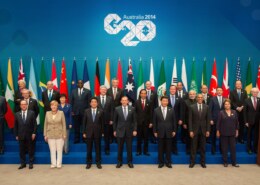Cybersecurity significantly impacts global geopolitics and international relations by: Espionage: Nations use cyber tools for intelligence gathering, affecting trust and diplomatic relations. Cyber Warfare: State-sponsored attacks can disrupt critical infrastructure, leading to tensions or conflictsRead more
Cybersecurity significantly impacts global geopolitics and international relations by:
- Espionage: Nations use cyber tools for intelligence gathering, affecting trust and diplomatic relations.
- Cyber Warfare: State-sponsored attacks can disrupt critical infrastructure, leading to tensions or conflicts.
- Economic Impact: Cyber theft and attacks can damage economies, influencing global trade and economic policies.
- Sovereignty: Cyber intrusions challenge national sovereignty and can provoke geopolitical responses.
- Political Interference: Cyber operations can influence elections and political stability, impacting international relations.
To address cyber threats effectively, countries can:
- Establish International Norms: Develop and agree on global standards for responsible state behavior in cyberspace.
- Enhance Cooperation: Share threat intelligence and best practices through international alliances and organizations.
- Create Multilateral Agreements: Form treaties to govern cyber conduct and ensure mutual assistance in response to cyber incidents.
- Promote Capacity Building: Assist less developed nations in strengthening their cyber defenses.
- Engage in Diplomatic Dialogues: Use diplomatic channels to resolve cyber-related disputes and build trust among nations.


The Olympic Games significantly impact global diplomacy and international relations by fostering unity, showcasing soft power, and providing a platform for peaceful interaction among nations. Through the Olympics, countries can engage in dialogue and cooperation, transcending political and culturalRead more
The Olympic Games significantly impact global diplomacy and international relations by fostering unity, showcasing soft power, and providing a platform for peaceful interaction among nations. Through the Olympics, countries can engage in dialogue and cooperation, transcending political and cultural differences.
For instance, the 2018 Winter Olympics in PyeongChang played a crucial role in easing tensions on the Korean Peninsula. North and South Korea marched together under a unified flag during the opening ceremony and fielded a joint women’s ice hockey team, symbolizing a rare moment of unity and diplomatic engagement amid longstanding hostilities.
Similarly, the 2008 Beijing Olympics highlighted China’s rising global influence and soft power. By hosting a spectacular event, China aimed to project an image of progress and modernity, enhancing its international standing and fostering diplomatic relationships.
The 2021 Tokyo Olympics, held amid the COVID-19 pandemic, showcased international solidarity and resilience. Despite challenges, countries collaborated to ensure the safety and success of the Games, reinforcing the spirit of global cooperation.
Overall, the Olympics serve as a microcosm of international diplomacy, where nations can demonstrate goodwill, resolve conflicts, and strengthen ties through sportsmanship and mutual respect, contributing to global peace and understanding.
See less